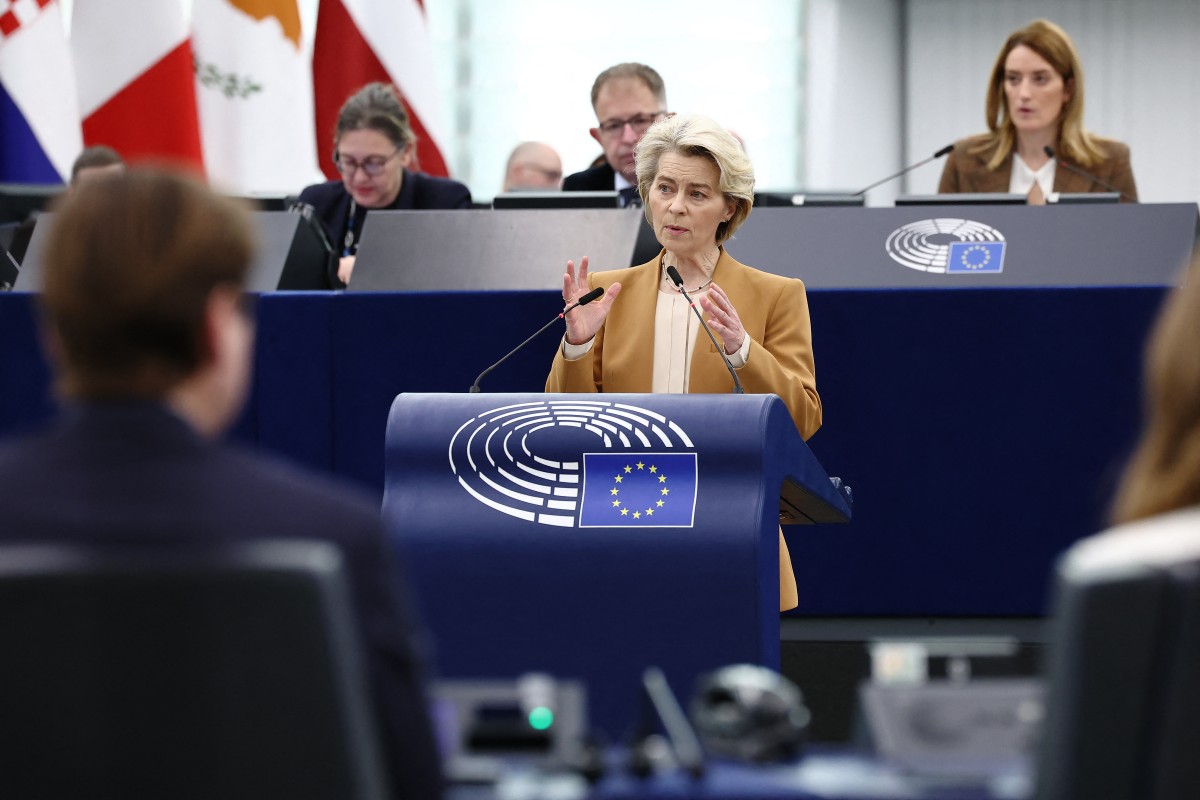Strasbourg, France – The EU on Tuesday urged a 90-percent cut to its greenhouse gas emissions by 2040, even as the bloc’s transition to a greener future was clouded by a widespread farmers’ revolt.
“Based on the best available science, and a detailed impact assessment, we are recommending that the 2040 target should be a 90 percent emission cut” compared to 1990 levels, said the EU climate commissioner, Wopke Hoekstra.
He called for a “fair transition” that will still allow EU businesses to thrive and ensure “nobody is left behind” as the bloc seeks to become carbon-neutral by 2050.
In a sign of how politically fraught the environmental issue has become, with farmers venting their anger around the bloc, European Commission chief Ursula von der Leyen earlier on Tuesday gave key ground by burying a plan to halve chemical pesticide use by the end of this decade.
The proposal “has become a symbol of polarization”, she acknowledged, with the legislation stalled amid divisions between EU lawmakers and member countries.
Tuesday’s announcements came as dozens of farmers protested outside the European Parliament building, angry over shrinking incomes, rising costs and what they say are increasingly onerous green regulations.
The 27-nation European Union is already working towards an interim target of cutting greenhouse gas emissions by 55 percent by 2030.
But rising discontent could deal it a tougher time in trying to get the 2040 goal of 90 percent cuts adopted.
Far-right and anti-establishment parties have latched onto the farmers’ movement and are predicted to make big gains in June elections to choose the members of the next EU assembly.
That vote will also lead to a new commission late this year. Von der Leyen has not yet said whether she intends to seek a new mandate at its helm.
Backlash
There is a vocal backlash from some industries to the bloc’s climate policies and several national leaders are now calling for a “pause” in new environmental rules.
Eleven EU countries, including France, Germany and Spain had sent a joint letter to Brussels saying that the transition for an “ambitious” 2040 target needs to be “fair and just” and “leave no-one behind, especially the most vulnerable citizens”.
The recommended target given on Tuesday was accompanied by new post-2030 climate projections the commission was required to produce in the wake of the COP28 UN climate negotiations that took place in December.
The next European Commission will be tasked with turning the outline into proposed legislation ahead of next year’s international climate summit (COP30).
The bloc’s 2040 targets are expected to rely in part on the capture and storage of ambitious volumes of carbon dioxide — incensing climate campaigners who criticize the technologies as untested and want to see gross emissions-cut pledges instead.
Even so, the plan would require a sizeable effort from every sector of the economy — from power generation to farming, which accounts for 11 percent of EU greenhouse gas emissions.
Very ambitious
Some of the strongest resistance to tougher environmental action comes from the center-right European People’s Party (EPP), from which von der Leyen hails.
The EPP’s Peter Liese says a more cautious stance is justified.
As the bloc has been implementing its existing 2030 target, he said, “we see more and more how ambitious it is”.
Liese considered a 90-percent emissions cut to be a “very ambitious” target for 2040 and stressed the need for “the right conditions, the right policy framework”.
Elisa Giannelli, of the E3G climate advocacy group, urged the EU to keep the social impact of its climate policies front of mind.
“Getting this wrong,” she said, “would allow conservative and populist voices to set the direction of the next steps.”
The United Nations climate change organization said in November the world was not acting with sufficient urgency to curb greenhouse gas emissions and thus limit global warming to 1.5 degrees Celsius above pre-industrial emissions.
With temperatures soaring and 2023 expected to be recorded as the warmest year in human history, scientists say the pressure on world leaders to curb planet-heating greenhouse gas pollution has never been more urgent.








